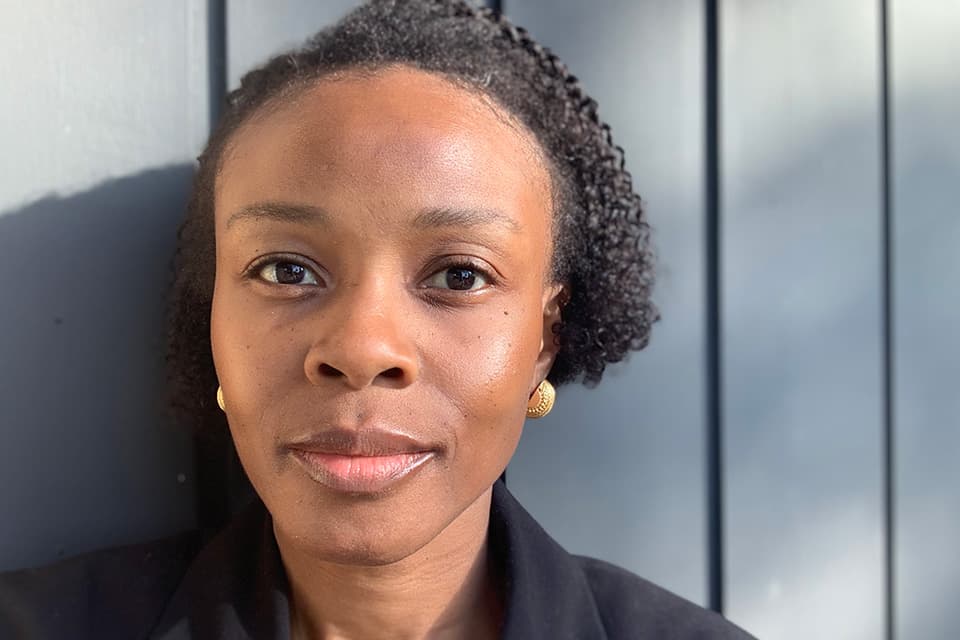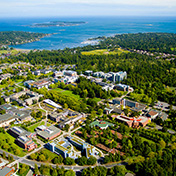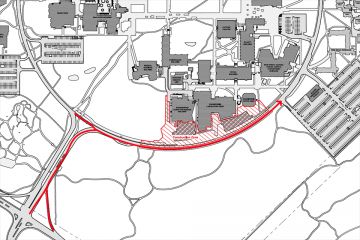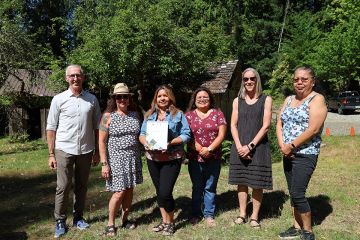A passion for cities
- Anne MacLaurin

Vanier scholar, Lusungu Kayani-Stearns discovered her passion for cities while completing a master's degree at Columbia University in New York. She was fascinated by the dynamism of cities and, most of all, the challenges. During a graduate internship in Nairobi, she was captivated by the city’s urban planning challenges—especially the ubiquitous slums and informal settlements surrounding the city.
“Whether in transportation, housing or the provision of water, it was clear that most urban dwellers did not benefit from formal [city] services,” she says.
Kayani-Stearns was born in Tanzania to two inspirational parents who moved across the world to pursue better opportunities for their children. She notes that her parents taught her to be aware of her Tanzanian heritage and to value community service.
As a doctoral researcher in geography, she is now studying the informal waste sector—specifically the people who recover waste in African cities, known as “waste pickers.”
I am interested in waste management due to the high urbanization rates and the burgeoning waste crisis on the continent."
— Lusungu Kayani-Stearns, Vanier scholar
For her doctoral research, Kayani-Stearns seeks to harness the innovation and opportunities in urban growth by delving into an often under-researched and poorly prioritized area in Tanzania: the challenge of waste.
"In Tanzanian cities, where my research will be based, solid waste collection rates hover at 30%. Similar to other cities in the region, this leads to widespread burning, burying and landfilling," she explains. The informal waste sector fills the gap by collecting 60–80% of waste, but Kayani-Stearns says that little about the sector is known, and contributions are often unacknowledged.
My work seeks to delve into this often under-researched and poorly prioritized area by better understanding the role that 'waste pickers' play in creating healthier and liveable cities."
— Lusungu Kayani-Stearns
Through community-based participatory research, Kayani-Stearns will examine who is in the sector, how they access waste materials, what challenges they face, what materials they recover and how those materials are reused.
Kayani-Stearns hopes that through the co-generation of research with people in the informal waste sector, she will be able to provide much-needed knowledge and evidence for transforming urban waste management systems to be more efficient and inclusive.
The Vanier Canada Graduate Scholarships are funded through the three federal research granting agencies: the Canadian Institutes of Health Research, the Natural Sciences and Engineering Research Council of Canada and the Social Sciences and Humanities Research Council of Canada scholars are the next generation of top-tier doctoral students and postdoctoral researchers in health, natural sciences and engineering, and social sciences and humanities.Throughout my doctoral research, I will profile the people who spend their days toiling through mountains of waste without any protective equipment or guaranteed pay to provide the evidence necessary for the urgent policy reforms needed."
— Lusungu Kayani-Stearns
Photos
In this story
Keywords: community, research, health, pollution, Award, world cultures, sustainability, international, environment, recycle
People: Lusungu Kayani-Stearns





